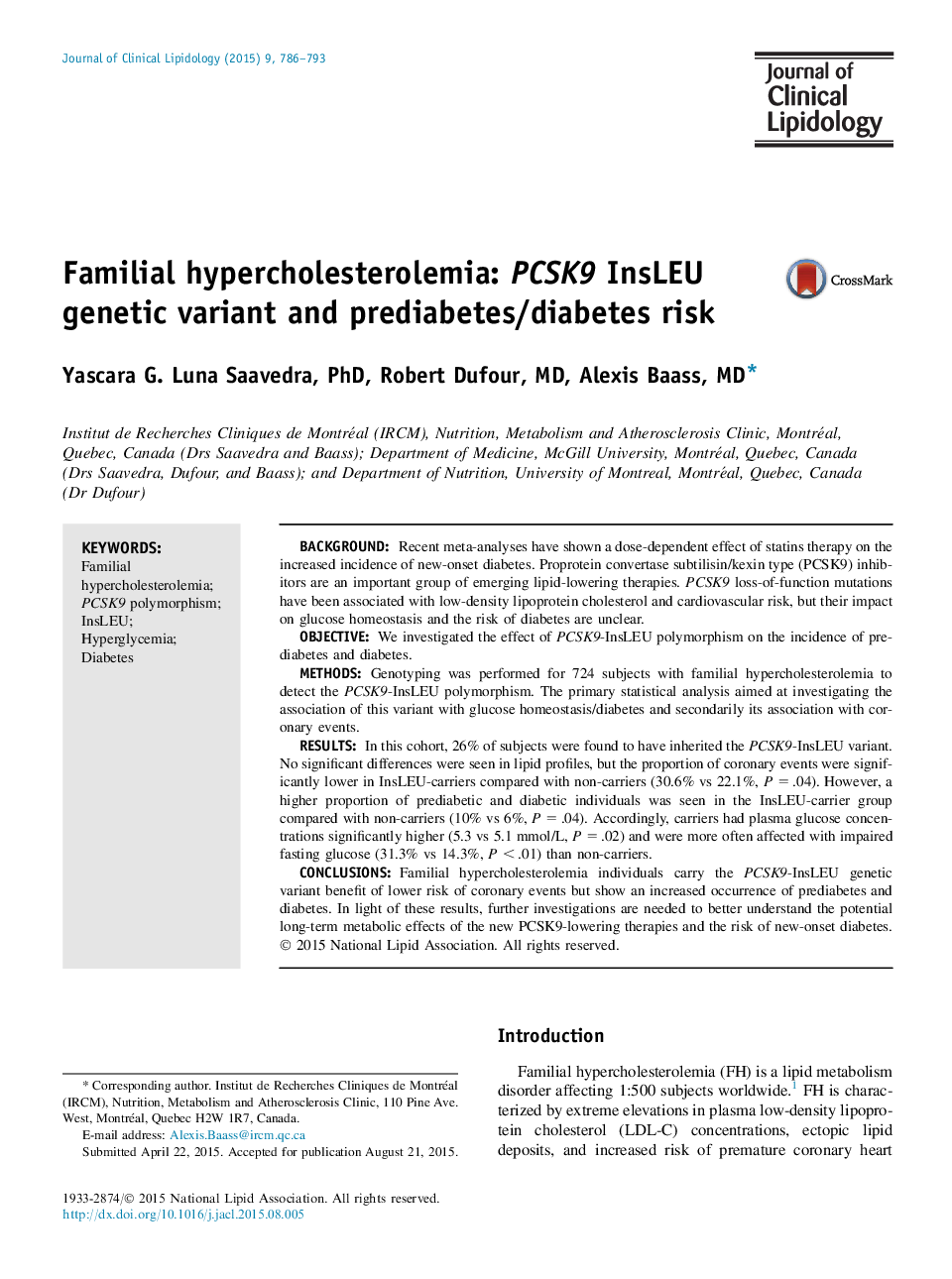| Article ID | Journal | Published Year | Pages | File Type |
|---|---|---|---|---|
| 5985803 | Journal of Clinical Lipidology | 2015 | 9 Pages |
â¢PCSK9 InsLEU variant was found in 26% of familial hypercholesterolemia patients.â¢PCSK9 InsLEU-carriers benefit of lower risk of coronary events.â¢Higher frequency of prediabetes/diabetes in PCSK9 InsLEU-carriers.
BackgroundRecent meta-analyses have shown a dose-dependent effect of statins therapy on the increased incidence of new-onset diabetes. Proprotein convertase subtilisin/kexin type (PCSK9) inhibitors are an important group of emerging lipid-lowering therapies. PCSK9 loss-of-function mutations have been associated with low-density lipoprotein cholesterol and cardiovascular risk, but their impact on glucose homeostasis and the risk of diabetes are unclear.ObjectiveWe investigated the effect of PCSK9-InsLEU polymorphism on the incidence of prediabetes and diabetes.MethodsGenotyping was performed for 724 subjects with familial hypercholesterolemia to detect the PCSK9-InsLEU polymorphism. The primary statistical analysis aimed at investigating the association of this variant with glucose homeostasis/diabetes and secondarily its association with coronary events.ResultsIn this cohort, 26% of subjects were found to have inherited the PCSK9-InsLEU variant. No significant differences were seen in lipid profiles, but the proportion of coronary events were significantly lower in InsLEU-carriers compared with non-carriers (30.6% vs 22.1%, PÂ =Â .04). However, a higher proportion of prediabetic and diabetic individuals was seen in the InsLEU-carrier group compared with non-carriers (10% vs 6%, PÂ =Â .04). Accordingly, carriers had plasma glucose concentrations significantly higher (5.3 vs 5.1Â mmol/L, PÂ =Â .02) and were more often affected with impaired fasting glucose (31.3% vs 14.3%, PÂ <Â .01) than non-carriers.ConclusionsFamilial hypercholesterolemia individuals carry the PCSK9-InsLEU genetic variant benefit of lower risk of coronary events but show an increased occurrence of prediabetes and diabetes. In light of these results, further investigations are needed to better understand the potential long-term metabolic effects of the new PCSK9-lowering therapies and the risk of new-onset diabetes.
